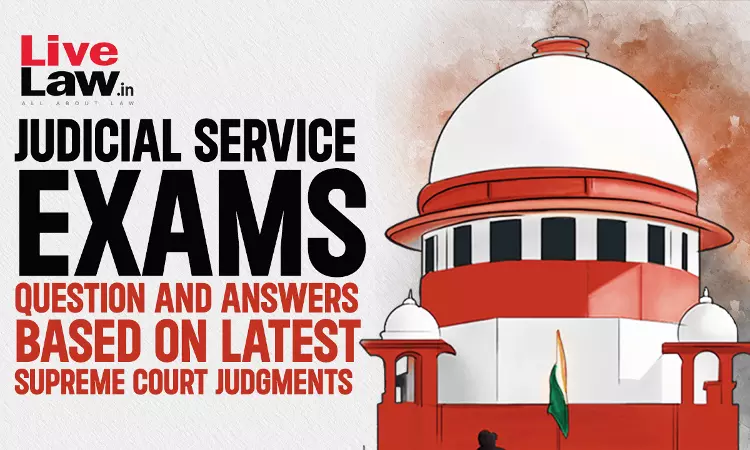Important MCQ's Based On Latest Supreme Court Judgments For Law Examinations
Yash Mittal
11 Aug 2024 12:35 PM IST

Next Story
11 Aug 2024 12:35 PM IST
Q 1. Does calling an accused to admit/deny the document produced by the prosecution under Section 294 CrPC violate the right against self-incrimination?a. Yes, the accused has a right to silence.b. Yes, the accused cannot be compelled to be a witness against itself.c. No, the accused cannot be a witness against himself if called upon to admit/deny the documents produced by the prosecution.d....
